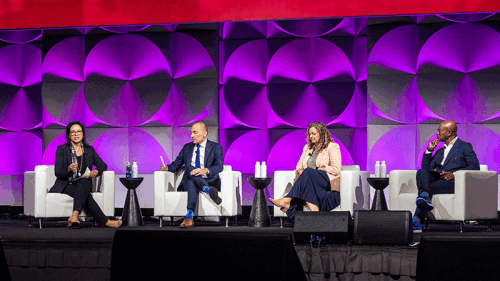Japan’s hospitality sector, coworking across Asia’s cities, and core assets in Australia were picked as positive investment stories for the Asia Pacific region by a wide-ranging panel of experts at the ULI China Mainland Winter Meeting in Shanghai.
The panel followed the China launch of the Emerging Trends in Real Estate® Asia Pacific 2019 report, jointly released by ULI and PwC, which distilled the views of hundreds of professionals in the region on the outlook for this year. Respondents picked Melbourne, Australia, as the best overall market for development and investment.
The discussion panel, moderated by Betty Wong, head of the Colliers China capital markets team, included Ko Iwahori, deputy general manager at Mitsubishi Estate Investment Management. He identified hospitality assets in Japan as his favorite sector and country investment combination in the region. “Inbound tourism is one of the few bright spots of the Japanese economy,” he said.
Visitor numbers to Japan have been growing rapidly since 2013, when the government of Shinzo Abe eased visa regulations for Asian nations and also began to weaken the Japanese currency. Visitor numbers grew to 28.7 million in 2017 and are expected to hit 30 million this year, making Japan one of the most-visited countries in Asia.
“If you look at an area like [Hokkaido ski resort] Niseko, it was quiet until it was discovered by the Australians, and now we Japanese can’t afford to go there!” Iwahori said. “All over Japan there are untapped markets where there is a beautiful natural landscape, hot springs, and good food, good local produce.”
The rise of coworking in Asia, particularly the rapid expansion of global leader WeWork, was also discussed. “We hear more and more about the importance of live, work, play, and learn in all real estate sectors, which we have seen change in the light of the shared economy,” said Wong.
Hei Ming Cheng, founder and chairman of KaiLong Group, a Chinese real estate investment management company that has invested in Greater China and overseas, said his company was the first to lease a whole building to WeWork—the Konnect, a 108,000-square-foot (10,000 sq m) office building in Shanghai.
“There has been a lot of progression in their business model,” he said. “For example, they are increasingly working with larger companies to deliver workspace solutions.” He noted that Asia-focused U.K. bank Standard Chartered has partnered with WeWork in Hong Kong to create a new innovation space in the bank’s headquarters building, which will host its new technology venture-capital business.
WeWork is also a major force in the office market in Tokyo, with 40 locations in the Japanese capital, Iwahori said. In Tokyo, WeWork is closely entwined with shareholder Softbank, which is also a major tenant, occupying 40 percent of WeWork’s Tokyo space, he said. WeWork Japan is a 50/50 joint venture between WeWork and Softbank, he said.
As an illustration of the rapid growth of coworking, Iwahori said, Mitsubishi Estate and Mitsui Fudosan are the largest real estate developers in Japan, but their combined market capitalisation is only the same as WeWork’s valuation of $45 billion.
Peggy Jin of China developer and asset manager Powerlong Real Estate Holdings, said the sharing economy has wider implications for real estate than coworking. “It is not just about sharing the location, but sharing the information and also sharing maybe basically everything that you have,” she said. “[Millennials] are adapted to sharing and don’t even use a computer most of the time, just a phone or a tablet.”
Jin also spoke about how the rise of the Chinese middle class is crucial to her company’s outlook because that group will drive retail spending and demand for residential property. “The Chinese middle class is now one-third of the population, which is why we are optimistic about malls,” she said. Her firm remains conservative regarding the residential market, she added.
Iwahori noted the continued appeal of Australia: in addition to Melbourne topping the investment and development tables, Sydney occupies third place in both categories. Australia’s economy and demographics are strong, he said, with a small budget deficit, years without recession, and population growth—all unusual in a developed economy.
“The market is highly competitive,” he said, because of the presence of many experienced and well-capitalized local players. Australia offers opportunities in the commercial and retail sectors, he said, though the multifamily residential sector is not a major part of the market. For core investors in the Asia Pacific region, Australia and Japan are the most targeted markets, and, as a consequence, a number of core investors have acquired assets in Sydney, Melbourne, and Tokyo.

